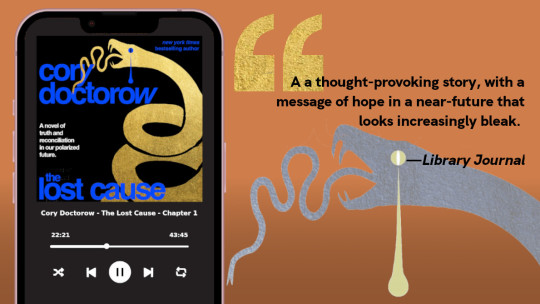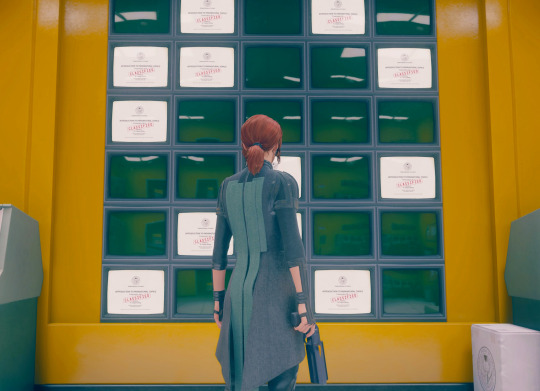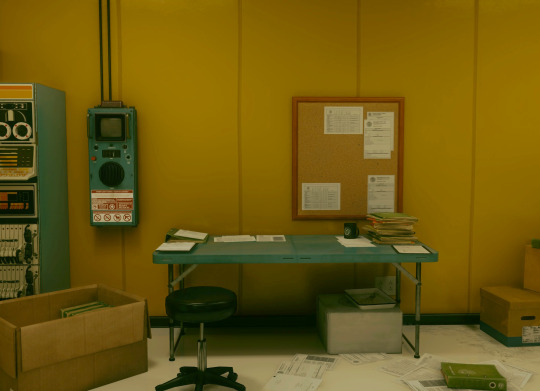#remedial goodness
Explore tagged Tumblr posts
Photo

Some self-indulgent Bell’s Hells drawings, on time for a saintly CR thursday
#Critical Role#Critical Role fanart#Bells hells#Ashton Greymoore#FCG#Imogen Temult#Fearne Calloway#Chetney Pock O'Pea#Laudna#Orym#not in the new outfits yet#but yeah hadn't drawn Ashton and FCG yet so I wanted to remedy that#and also just wanted to have a good time drawing all of them together#Love them kiddos <3
3K notes
·
View notes
Text

Bucktober Day 29 - Ache
#bucky has a headache and taking a nap on steve turns out to be a good remedy#bucky barnes#steve rogers#stevebucky#marvel fanart#marvel#bucktober2024#my art#bucky barnes fanart#steve rogers fanart#stevebucky fanart
324 notes
·
View notes
Text
reading pliny the elder for ancient remedies is so much fun because some of it is stuff that coule feasibly help you feel better, a quarter of it is batshit insane, and the rest is just.

#pliny the elder voice put these onions on your penis i promise it's good for you (real remedy btw)#tagamemnon#pliny the elder#queueusque tandem abutere catilina patientia nostra
1K notes
·
View notes
Text
"Sunlight dapples the once-denuded forest floor as saplings spread their branches and leaves overhead, slowly forming a lush canopy.
Beside each young tree, a sign notes its species. Lupuna, says one, the colloquial Peruvian term, and below that its scientific name, Ceiba pentandra — in other words, a kapok tree, known for its cotton-like fibers. Huito, says another sign, or Geinpa americana, which produces edible gray berries.
Each sapling is distinct, a reflection of the Amazon's stunning biodiversity, with so many different species that you might go acres without finding a repeat.
Yet this young forest did not spring up naturally. It has been carefully recreated by humans in an area that was, until just three years ago, a heavily contaminated moonscape.
This land was stripped of its dense vegetation by miners scouring the subsoil for tiny specks of gold, using mercury to separate the gold from the sediment. Many thought that a healthy forest would never thrive in impoverished, mercury-laden topsoil and that the piles of sandy tailings, the residue from the gold mining effort, and the pools of wastewater were irremediable...
"It feels good to see the forest grow back," says Pedro Ynfantes, 66, the miner whose legal mining concession of 1,110 acres includes this 10-acre patch of land where this young forest is located. "We don't want to deforest. When we had the opportunity to let the forest grow back, we took it. It's much better this way."
The opportunity he refers to came via U.S. nonprofit Pure Earth, which works with communities across the Global Southto remediate environmental problems left behind by mining, much of it illegal. Their biggest targets are mercury and lead contamination...
Security forces have launched anti-mining operations down the years, even blowing up the miners' equipment deep in the jungle. But most local politicians, including Madre de Dios' members of Peru's national congress, broadly support the miners, who are a powerful constituency in the relatively sparsely populated jungle region.
Restoring the forest

Pictured: France Cabanillas works for the nonprofit group Pure Earth, which is spearheading an effort to plant saplings in areas of the Peruvian Amazon that were devastated by illegal gold mining.
Now there's an effort to address the damage. Initially working with the region's legal miners, most of whom were here before the 2009 gold rush kicked off, the nonprofit group Pure Earth is using this patch of Ynfantes' land as a pilot project to show how the rainforest can be regenerated after the last traces of gold have been plucked from the soil.
It took a sustained outreach effort. Many miners are wary of or even downright hostile to foreign NGOs, which have repeatedly called for gold mining to be banned or severely curbed in the Peruvian Amazon — steps they say would cost them their livelihood.
"I am feeling optimistic," says France Cabanillas, Pure Earth's local coordinator, who has been appealing to the frustration of many miners at the heavy toll they have taken on the jungle and their desire to minimize their environmental footprint for the next generation.
"We still have a lot to do but this pilot is going well. Down the years, the miners have been getting a lot of stick but not much carrot when it comes to their environmental impacts," says Cabanillas. "We are offering them a carrot, allowing them to remediate their own impacts. Many of the miners do not want to be destroying the rainforest."
Before the miners plant the carefully-selected mix of tree species, they had to prepare the earth. Most of the topsoil had been washed away by the miners' heavy use of hoses.
That preparation involved adding biochar (burnt organic material) and even molasses, which contain fixed carbon and minerals, along with various other nutrients. The miners also had to dig tiny moats around the saplings to prevent all of this new planting from being washed away. Now, after three years, the forest is visibly coming back.
The rejuvenated rainforest also mitigates the impact of the mercury used by many of the illegal miners.
Research done by Pure Earth shows that the barren, sandy soil emits mercury. But in a rainforest, the ecosystem actually absorbs some of the metal, boosting public health."
-via NPR, April 2, 2024
#mining#illegal miners#gold#gold mining#peru#rainforest#ecosystem#mercury#environment#pollution#remediation#reforestation#good news#hope
386 notes
·
View notes
Text
Pluralistic: Leaving Twitter had no effect on NPR's traffic

I'm coming to Minneapolis! This Sunday (Oct 15): Presenting The Internet Con at Moon Palace Books. Monday (Oct 16): Keynoting the 26th ACM Conference On Computer-Supported Cooperative Work and Social Computing.

Enshittification is the process by which a platform lures in and then captures end users (stage one), who serve as bait for business customers, who are also captured (stage two), whereupon the platform rug-pulls both groups and allocates all the value they generate and exchange to itself (stage three):
https://pluralistic.net/2023/01/21/potemkin-ai/#hey-guys
Enshittification isn't merely a form of rent-seeking – it is a uniquely digital phenomenon, because it relies on the inherent flexibility of digital systems. There are lots of intermediaries that want to extract surpluses from customers and suppliers – everyone from grocers to oil companies – but these can't be reconfigured in an eyeblink the that that purely digital services can.
A sleazy boss can hide their wage-theft with a bunch of confusing deductions to your paycheck. But when your boss is an app, it can engage in algorithmic wage discrimination, where your pay declines minutely every time you accept a job, but if you start to decline jobs, the app can raise the offer:
https://pluralistic.net/2023/04/12/algorithmic-wage-discrimination/#fishers-of-men
I call this process "twiddling": tech platforms are equipped with a million knobs on their back-ends, and platform operators can endlessly twiddle those knobs, altering the business logic from moment to moment, turning the system into an endlessly shifting quagmire where neither users nor business customers can ever be sure whether they're getting a fair deal:
https://pluralistic.net/2023/02/19/twiddler/
Social media platforms are compulsive twiddlers. They use endless variation to lure in – and then lock in – publishers, with the goal of converting these standalone businesses into commodity suppliers who are dependent on the platform, who can then be charged rent to reach the users who asked to hear from them.
Facebook designed this playbook. First, it lured in end-users by promising them a good deal: "Unlike Myspace, which spies on you from asshole to appetite, Facebook is a privacy-respecting site that will never, ever spy on you. Simply sign up, tell us everyone who matters to you, and we'll populate a feed with everything they post for public consumption":
https://lawcat.berkeley.edu/record/1128876
The users came, and locked themselves in: when people gather in social spaces, they inadvertently take one another hostage. You joined Facebook because you liked the people who were there, then others joined because they liked you. Facebook can now make life worse for all of you without losing your business. You might hate Facebook, but you like each other, and the collective action problem of deciding when and whether to go, and where you should go next, is so difficult to overcome, that you all stay in a place that's getting progressively worse.
Once its users were locked in, Facebook turned to advertisers and said, "Remember when we told these rubes we'd never spy on them? It was a lie. We spy on them with every hour that God sends, and we'll sell you access to that data in the form of dirt-cheap targeted ads."
Then Facebook went to the publishers and said, "Remember when we told these suckers that we'd only show them the things they asked to see? Total lie. Post short excerpts from your content and links back to your websites and we'll nonconsensually cram them into the eyeballs of people who never asked to see them. It's a free, high-value traffic funnel for your own site, bringing monetizable users right to your door."
Now, Facebook had to find a way to lock in those publishers. To do this, it had to twiddle. By tiny increments, Facebook deprioritized publishers' content, forcing them to make their excerpts grew progressively longer. As with gig workers, the digital flexibility of Facebook gave it lots of leeway here. Some publishers sensed the excerpts they were being asked to post were a substitute for visiting their sites – and not an enticement – and drew down their posting to Facebook.
When that happened, Facebook could twiddle in the publisher's favor, giving them broader distribution for shorter excerpts, then, once the publisher returned to the platform, Facebook drew down their traffic unless they started posting longer pieces. Twiddling lets platforms play users and business-customers like a fish on a line, giving them slack when they fight, then reeling them in when they tire.
Once Facebook converted a publisher to a commodity supplier to the platform, it reeled the publishers in. First, it deprioritized publishers' posts when they had links back to the publisher's site (under the pretext of policing "clickbait" and "malicious links"). Then, it stopped showing publishers' content to their own subscribers, extorting them to pay to "boost" their posts in order to reach people who had explicitly asked to hear from them.
For users, this meant that their feeds were increasingly populated with payola-boosted content from advertisers and pay-to-play publishers who paid Facebook's Danegeld to reach them. A user will only spend so much time on Facebook, and every post that Facebook feeds that user from someone they want to hear from is a missed opportunity to show them a post from someone who'll pay to reach them.
Here, too, twiddling lets Facebook fine-tune its approach. If a user starts to wean themself off Facebook, the algorithm (TM) can put more content the user has asked to see in the feed. When the user's participation returns to higher levels, Facebook can draw down the share of desirable content again, replacing it with monetizable content. This is done minutely, behind the scenes, automatically, and quickly. In any shell game, the quickness of the hand deceives the eye.
This is the final stage of enshittification: withdrawing surpluses from end-users and business customers, leaving behind the minimum homeopathic quantum of value for each needed to keep them locked to the platform, generating value that can be extracted and diverted to platform shareholders.
But this is a brittle equilibrium to maintain. The difference between "God, I hate this place but I just can't leave it" and "Holy shit, this sucks, I'm outta here" is razor-thin. All it takes is one privacy scandal, one livestreamed mass-shooting, one whistleblower dump, and people bolt for the exits. This kicks off a death-spiral: as users and business customers leave, the platform's shareholders demand that they squeeze the remaining population harder to make up for the loss.
One reason this gambit worked so well is that it was a long con. Platform operators and their investors have been willing to throw away billions convincing end-users and business customers to lock themselves in until it was time for the pig-butchering to begin. They financed expensive forays into additional features and complementary products meant to increase user lock-in, raising the switching costs for users who were tempted to leave.
For example, Facebook's product manager for its "photos" product wrote to Mark Zuckerberg to lay out a strategy of enticing users into uploading valuable family photos to the platform in order to "make switching costs very high for users," who would have to throw away their precious memories as the price for leaving Facebook:
https://www.eff.org/deeplinks/2021/08/facebooks-secret-war-switching-costs
The platforms' patience paid off. Their slow ratchets operated so subtly that we barely noticed the squeeze, and when we did, they relaxed the pressure until we were lulled back into complacency. Long cons require a lot of prefrontal cortex, the executive function to exercise patience and restraint.
Which brings me to Elon Musk, a man who seems to have been born without a prefrontal cortex, who has repeatedly and publicly demonstrated that he lacks any restraint, patience or planning. Elon Musk's prefrontal cortical deficit resulted in his being forced to buy Twitter, and his every action since has betrayed an even graver inability to stop tripping over his own dick.
Where Zuckerberg played enshittification as a long game, Musk is bent on speedrunning it. He doesn't slice his users up with a subtle scalpel, he hacks away at them with a hatchet.
Musk inaugurated his reign by nonconsensually flipping every user to an algorithmic feed which was crammed with ads and posts from "verified" users whose blue ticks verified solely that they had $8 ($11 for iOS users). Where Facebook deployed substantial effort to enticing users who tired of eyeball-cramming feed decay by temporarily improving their feeds, Musk's Twitter actually overrode users' choice to switch back to a chronological feed by repeatedly flipping them back to more monetizable, algorithmic feeds.
Then came the squeeze on publishers. Musk's Twitter rolled out a bewildering array of "verification" ticks, each priced higher than the last, and publishers who refused to pay found their subscribers taken hostage, with Twitter downranking or shadowbanning their content unless they paid.
(Musk also squeezed advertisers, keeping the same high prices but reducing the quality of the offer by killing programs that kept advertisers' content from being published along Holocaust denial and open calls for genocide.)
Today, Musk continues to squeeze advertisers, publishers and users, and his hamfisted enticements to make up for these depredations are spectacularly bad, and even illegal, like offering advertisers a new kind of ad that isn't associated with any Twitter account, can't be blocked, and is not labeled as an ad:
https://www.wired.com/story/xs-sneaky-new-ads-might-be-illegal/
Of course, Musk has a compulsive bullshitter's contempt for the press, so he has far fewer enticements for them to stay. Quite the reverse: first, Musk removed headlines from link previews, rendering posts by publishers that went to their own sites into stock-art enigmas that generated no traffic:
https://www.theguardian.com/technology/2023/oct/05/x-twitter-strips-headlines-new-links-why-elon-musk
Then he jumped straight to the end-stage of enshittification by announcing that he would shadowban any newsmedia posts with links to sites other than Twitter, "because there is less time spent if people click away." Publishers were advised to "post content in long form on this platform":
https://mamot.fr/@pluralistic/111183068362793821
Where a canny enshittifier would have gestured at a gaslighting explanation ("we're shadowbanning posts with links because they might be malicious"), Musk busts out the motto of the Darth Vader MBA: "I am altering the deal, pray I don't alter it any further."
All this has the effect of highlighting just how little residual value there is on the platform for publishers, and tempts them to bolt for the exits. Six months ago, NPR lost all patience with Musk's shenanigans, and quit the service. Half a year later, they've revealed how low the switching cost for a major news outlet that leaves Twitter really are: NPR's traffic, post-Twitter, has declined by less than a single percentage point:
https://niemanreports.org/articles/npr-twitter-musk/
NPR's Twitter accounts had 8.7 million followers, but even six months ago, Musk's enshittification speedrun had drawn down NPR's ability to reach those users to a negligible level. The 8.7 million number was an illusion, a shell game Musk played on publishers like NPR in a bid to get them to buy a five-figure iridium checkmark or even a six-figure titanium one.
On Twitter, the true number of followers you have is effectively zero – not because Twitter users haven't explicitly instructed the service to show them your posts, but because every post in their feeds that they want to see is a post that no one can be charged to show them.
I've experienced this myself. Three and a half years ago, I left Boing Boing and started pluralistic.net, my cross-platform, open access, surveillance-free, daily newsletter and blog:
https://pluralistic.net/2023/02/19/drei-drei-drei/#now-we-are-three
Boing Boing had the good fortune to have attracted a sizable audience before the advent of siloed platforms, and a large portion of that audience came to the site directly, rather than following us on social media. I knew that, starting a new platform from scratch, I wouldn't have that luxury. My audience would come from social media, and it would be up to me to convert readers into people who followed me on platforms I controlled – where neither they nor I could be held to ransom.
I embraced a strategy called POSSE: Post Own Site, Syndicate Everywhere. With POSSE, the permalink and native habitat for your material is a site you control (in my case, a WordPress blog with all the telemetry, logging and surveillance disabled). Then you repost that content to other platforms – mostly social media – with links back to your own site:
https://indieweb.org/POSSE
There are a lot of automated tools to help you with this, but the platforms have gone to great lengths to break or neuter them. Musk's attack on Twitter's legendarily flexible and powerful API killed every automation tool that might help with this. I was lucky enough to have a reader – Loren Kohnfelder – who coded me some python scripts that automate much of the process, but POSSE remains a very labor-intensive and error-prone methodology:
https://pluralistic.net/2021/01/13/two-decades/#hfbd
And of all the feeds I produce – email, RSS, Discourse, Medium, Tumblr, Mastodon – none is as labor-intensive as Twitter's. It is an unforgiving medium to begin with, and Musk's drawdown of engineering support has made it wildly unreliable. Many's the time I've set up 20+ posts in a thread, only to have the browser tab reload itself and wipe out all my work.
But I stuck with Twitter, because I have a half-million followers, and to the extent that I reach them there, I can hope that they will follow the permalinks to Pluralistic proper and switch over to RSS, or email, or a daily visit to the blog.
But with each day, the case for using Twitter grows weaker. I get ten times as many replies and reposts on Mastodon, though my Mastodon follower count is a tenth the size of my (increasingly hypothetical) Twitter audience.
All this raises the question of what can or should be done about Twitter. One possible regulatory response would be to impose an "End-To-End" rule on the service, requiring that Twitter deliver posts from willing senders to willing receivers without interfering in them. End-To-end is the bedrock of the internet (one of its incarnations is Net Neutrality) and it's a proven counterenshittificatory force:
https://www.eff.org/deeplinks/2023/06/save-news-we-need-end-end-web
Despite what you may have heard, "freedom of reach" is freedom of speech: when a platform interposes itself between willing speakers and their willing audiences, it arrogates to itself the power to control what we're allowed to say and who is allowed to hear us:
https://pluralistic.net/2022/12/10/e2e/#the-censors-pen
We have a wide variety of tools to make a rule like this stick. For one thing, Musk's Twitter has violated innumerable laws and consent decrees in the US, Canada and the EU, which creates a space for regulators to impose "conduct remedies" on the company.
But there's also existing regulatory authorities, like the FTC's Section Five powers, which enable the agency to act against companies that engage in "unfair and deceptive" acts. When Twitter asks you who you want to hear from, then refuses to deliver their posts to you unless they pay a bribe, that's both "unfair and deceptive":
https://pluralistic.net/2023/01/10/the-courage-to-govern/#whos-in-charge
But that's only a stopgap. The problem with Twitter isn't that this important service is run by the wrong mercurial, mediocre billionaire: it's that hundreds of millions of people are at the mercy of any foolish corporate leader. While there's a short-term case for improving the platforms, our long-term strategy should be evacuating them:
https://pluralistic.net/2023/07/18/urban-wildlife-interface/#combustible-walled-gardens
To make that a reality, we could also impose a "Right To Exit" on the platforms. This would be an interoperability rule that would require Twitter to adopt Mastodon's approach to server-hopping: click a link to export the list of everyone who follows you on one server, click another link to upload that file to another server, and all your followers and followees are relocated to your new digs:
https://pluralistic.net/2022/12/23/semipermeable-membranes/#free-as-in-puppies
A Twitter with the Right To Exit would exert a powerful discipline even on the stunted self-regulatory centers of Elon Musk's brain. If he banned a reporter for publishing truthful coverage that cast him in a bad light, that reporter would have the legal right to move to another platform, and continue to reach the people who follow them on Twitter. Publishers aghast at having the headlines removed from their Twitter posts could go somewhere less slipshod and still reach the people who want to hear from them on Twitter.
And both Right To Exit and End-To-End satisfy the two prime tests for sound internet regulation: first, they are easy to administer. If you want to know whether Musk is permitting harassment on his platform, you have to agree on a definition of harassment, determine whether a given act meets that definition, and then investigate whether Twitter took reasonable steps to prevent it.
By contrast, administering End-To-End merely requires that you post something and see if your followers receive it. Administering Right To Exit is as simple as saying, "OK, Twitter, I know you say you gave Cory his follower and followee file, but he says he never got it. Just send him another copy, and this time, CC the regulator so we can verify that it arrived."
Beyond administration, there's the cost of compliance. Requiring Twitter to police its users' conduct also requires it to hire an army of moderators – something that Elon Musk might be able to afford, but community-supported, small federated servers couldn't. A tech regulation can easily become a barrier to entry, blocking better competitors who might replace the company whose conduct spurred the regulation in the first place.
End-to-End does not present this kind of barrier. The default state for a social media platform is to deliver posts from accounts to their followers. Interfering with End-To-End costs more than delivering the messages users want to have. Likewise, a Right To Exit is a solved problem, built into the open Mastodon protocol, itself built atop the open ActivityPub standard.
It's not just Twitter. Every platform is consuming itself in an orgy of enshittification. This is the Great Enshittening, a moment of universal, end-stage platform decay. As the platforms burn, calls to address the fires grow louder and harder for policymakers to resist. But not all solutions to platform decay are created equal. Some solutions will perversely enshrine the dominance of platforms, help make them both too big to fail and too big to jail.
Musk has flagrantly violated so many rules, laws and consent decrees that he has accidentally turned Twitter into the perfect starting point for a program of platform reform and platform evacuation.

If you'd like an essay-formatted version of this post to read or share, here's a link to it on pluralistic.net, my surveillance-free, ad-free, tracker-free blog:
https://pluralistic.net/2023/10/14/freedom-of-reach/#ex


My next novel is The Lost Cause, a hopeful novel of the climate emergency. Amazon won't sell the audiobook, so I made my own and I'm pre-selling it on Kickstarter!

Image: JD Lasica (modified) https://commons.wikimedia.org/wiki/File:Elon_Musk_%283018710552%29.jpg
CC BY 2.0 https://creativecommons.org/licenses/by/2.0/deed.en
#pluralistic#twitter#posse#elon musk#x#social media#graceful failure modes#end-to-end principle#administratable remedies#good regulation#ads#privacy#benevolent dictatorships#freedom of reach#journalism#enshittification#switching costs
801 notes
·
View notes
Text








#alan wake 2#thomas zane#tom zane#ilkka villi#alanwakeedit#ilkkavilliedit#mk.op#mk.edit#mk.gifs#i know somebody has made a set like this before#i couldn't find it?? unless i just tagged it with my aw2 tag??#my thomas zane tag honestly feels so....bare#like i expected far more than what's in there but i know i don't always do a good job at tagging#esp when i'm on my phone and admittedly in my car in traffic just scrolling through lol#also next saturday is the one year anniversary of my first time playing alan wake 2 and foray into the remedy verse#and i wanna do something real special but idk what#(and can you all believe it's only been 8 months since i've become vocal about it all on tumblr cause i can't)#(feels like i've been part of this fandom for years)
87 notes
·
View notes
Text

when the writer is in doubt, my turn to come out (scratch out)
#alan wake#alan wake 2#mr scratch#remedy entertainment#remedy games#remedy connected universe#fan art#my art#the kalevala knights jacket look?? too good#also the distortion effects and live action overlays every time scratch is on screen is so cool i can't look enough at it#even though it's terrifying#dark twisted and cruel is such a banger way to end a chapter#the way remedy uses music in their games in general is still one of my favs in the gaming world#so have this drawing i was sitting on for like a month#bc i'm still thinking about this game 24/7
523 notes
·
View notes
Text





#alan wake's american nightmare#mr scratch#ilkka villi#sam lake#alan wake#remedy entertainment#good for them#loonuhtik
349 notes
·
View notes
Text
Charcoal-like Substance Can Clean Industrial Pollution by Converting Toxic Heavy Metal into Essential Nutrient https://www.goodnewsnetwork.org/charcoal-like-substance-can-clean-industrial-pollution-by-converting-toxic-heavy-metal-into-essential-nutrient/

Researchers from the University of Waterloo have discovered that a special form of charcoal is highly effective at absorbing chromium and transforming it from a toxic industrial waste form into the form seen in nutritional supplements.
Chromium is a heavy metal that exists in two forms. One form, chromium(III), is a safe micronutrient that our body needs. The other, chromium(VI), is a dangerous carcinogen linked to ovarian, lung, and liver cancer, and reproductive problems. The dangerous form is usually created during industrial processes such as leather tanning, stainless steel production, and mining, but it can also occur naturally in the presence of manganese minerals.
Biochar, a form of charcoal produced by heating agricultural waste without oxygen, is being studied as a potential tool for cleaning up chromium pollution at industrial sites, using the natural filtering ability of organic carbon
#good news#environmentalism#science#green technology#technology#biochar#environmental remediation#environment#environmental contamination#pollution solutions
64 notes
·
View notes
Text


#good morning oceanviewers I'm setting things up for a gifset and just wanted to share these very important bits combined 😇#I can almost hear one of Alan's screams for help from DBD when I look at the first gif - as if he expected Tim to show up in his aid#while Zane is literally like 🥵🥴#little shit (affectionate)#Thomas Zane#Alan Wake#Alan Wake 2#Ilkka Villi#Remedy Entertainment#tinyclowntent#tw: flashing
294 notes
·
View notes
Text

some practice doodles for my next post - simplifying characters do not come easy 😭🫠 and yes I'm an advocate for 💜soft grunge/ goth/ graceful goddess/ disney princess 💜 Raven and everything in between because shoving her into one category is lazy.
#raven#teen titans#rachel roth#dc#my art#fanart#dc comics#ngl though#I did mainly just want to draw out that dress#but not commit to a full piece skdjskska#anyways the next post requires simple characters#something I have trouble with lately so this is a remedy#Raven was never JUST goth#and I will fight anyone on that#popular media portrayals can do harm 🫥🫥#will I ever stop loving her as a character though ugh NEVER#lowkey wondering why the flower came out looking good
2K notes
·
View notes
Text



the reason why control is one of the best games is because they’ll show you the most gorgeous sequence of the foundation of the oldest house overlapped with the beauty of the world, its oceans, forests, rivers. then the scene will conclude with Ahti saying “did you have piss in your sock” and I think that’s beautiful
#control 2019#control remedy#ahti#big fan of the janitor being the most important and influential figure in the game#like the board and FBC are nothing in comparison#just a beautiful soul. my best friend etc etc. ahtis the best#spoilers for the final draft in aw2 -> there’s an additional page about ahti and the bucket and it’s soooo good I love him
219 notes
·
View notes
Text

the writer and his editor 📃💭
#this.... doesn't not look good on mobile lol#alan wake 2#alan wake fanart#alan wake#scratch#mr. scratch#scratchwake#remedy#remedy games#aw2#aw#soft scratchwake brainrot going strong#i even made a playlist..........#draws#own
151 notes
·
View notes
Text






CONTROL [25/ ▼]
#control#control game#control remedy#jesse faden#controledit#*controledit#some yellow#finally finished my second playthrough of the main game#still so good
211 notes
·
View notes
Text










the room's not the world; the world is much bigger, and much stranger.
#control#remedy control#my god the last few years have been me finding new design aesthetics i like#bc Oh My God this game is STUPIDLY beautiful#i NEVER mess around with photo modes in games#because i can never quite get things to look right#but control is so goddamn beautiful that any photo you take is immediately museum worthy#so yeah i’m oddly very happy with how these look lol#remedy have a really really good knack for design and visuals and aesthetics in general but control is just. unfair to everyone else. lol#might mess around with AW2's photo mode as well because that game is similarly stunning#but. Man. i fucking love this game#i might end up using some of these as wallpapers at some point bc they're that pretty lol
81 notes
·
View notes
Text

There’s a little corner of my brain dedicated to these two
#zachariah trench#casper darling#trench x darling#remedy control#my art#trying to figure out how to draw less stiffly#they’re in love your honor#and they’re good practice
54 notes
·
View notes